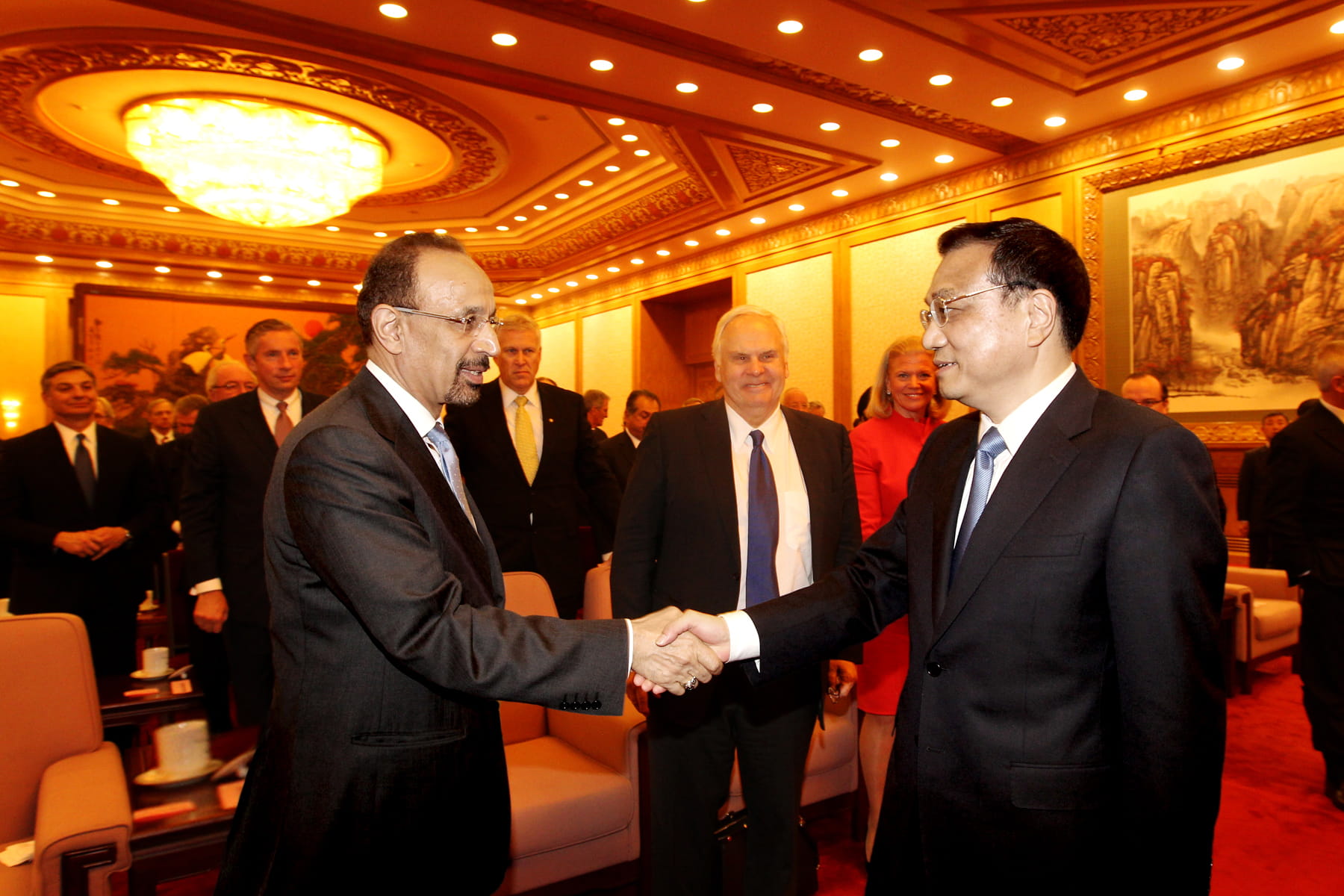The message from China’s policymakers at this year’s China Development Forum (CDF) was clear: Innovation and integration are key drivers of China’s next phase of ‘new normal’ development.
Saudi Aramco is well positioned to play a more active role in the country’s quest for greater energy security while it targets high-quality economic growth and living standards, president and CEO Khalid A. Al-Falih said in Beijing earlier this week.
During the 16th CDF, Al-Falih was part of a distinguished panel that addressed China’s “One Belt, One Road” vision linking Asia through a modern Silk Road that connects countries through trade, education and culture. Already, Saudi Aramco has had a head start to the modern Silk Road, Al-Falih said. Supertankers from Saudi Aramco’s Ras Tanura terminal have long been making the voyage to deliver the energy that China needs. In the opposite direction, huge container ships sail daily from China to the shores of the Arabian Peninsula. Beyond the supply of oil, the company has invested along the petroleum value chain in China’s Fujian Province in a world-class integrated refinery-petrochemical complex, and is pursuing more investments in southwest China. The YASREF refinery joint venture with Sinopec in Yanbu’ is another example, he said in his remarks at the forum.
Still, more can be done to create win-win partnerships given Saudi Arabia’s abundant oil reserves and China’s vast and energy-driven economy. Al-Falih called on Chinese companies, which have won $25 billion of business in recent years in Saudi Arabia, to invest in the Kingdom’s west coast and expand trade links with Africa. Al-Falih said Saudi Aramco can make a difference in China’s ‘new normal.’
Despite the downturn in the oil industry, the company continues to pursue its long-term growth strategy and meet China’s growing oil needs reliably. “No matter what, Saudi Aramco will remain the largest and most reliable energy supplier on the planet, and that safety belt is available for China to rely on.” Saudi Aramco wants to increase its resence in China’s downstream value chain and is willing to make investments that will produce cleaner energy, Al- Falih said, and he urged China’s policymakers to enable more access to downstream investments. That could contribute to a broader alliance that promotes energy infrastructure connectivity at various points in the modern Silk Road.
China’s focus on creating an innovation-driven economy to improve energy efficiency, lower carbon emissions and produce clean and affordable energy was a common theme heard during the CDF. This creates opportunities to collaborate with China’s leading research and technology institutions, Al-Falih said, and he announced that Saudi Aramco will next month open an advanced research center in Beijing to conduct cutting-edge upstream research.
The annual CDF event provides delegates — with usually more than 1,500 in attendance
— an opportunity to interact with China’s ministers, policymakers, and leaders of key industries.
During the CDF, the CEO sat down for exclusive interviews with two leading media companies — China Central Television (CCTV) and Caixin Media. During the interviews with Natalie Wang of CCTV, and Hu Shuli and Wang Shuo of Caixin, Al-Falih explained Saudi Aramco’s strategy in China and welcomed the One Belt, One Road initiative. He reiterated the company’s long- term commitment to the country’s development, and Saudi Aramco will continue its long-term strategy of investments and also continue to be a stable supplier of energy to the world.
Saudi Aramco’s investments in China will enable a win-win-win partnership. “A win for Saudi Aramco, a win for Chinese companies and the most important win is the win for the people of China,” Al-Falih said.


.jpg?cx=0.5&cy=0.5&mw=10)

